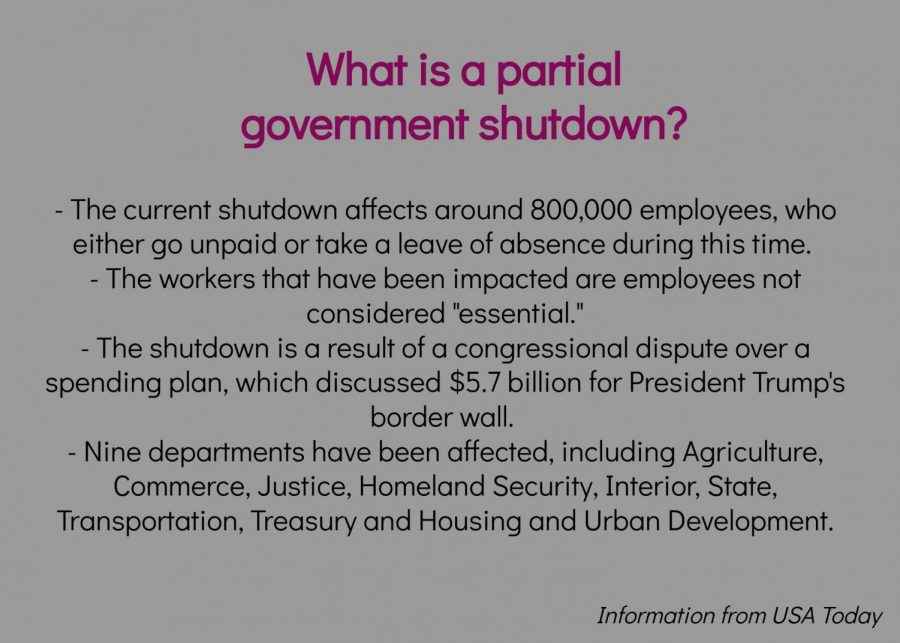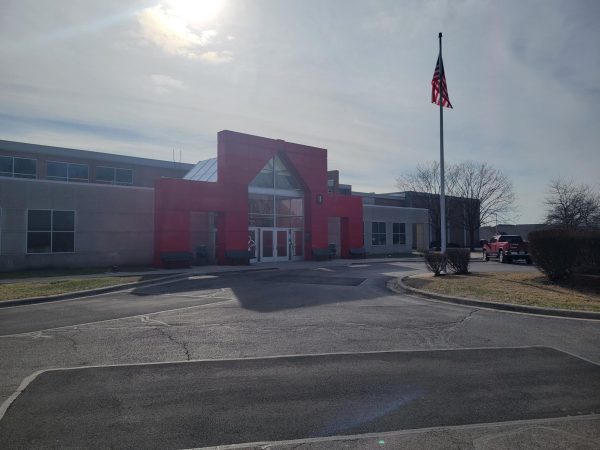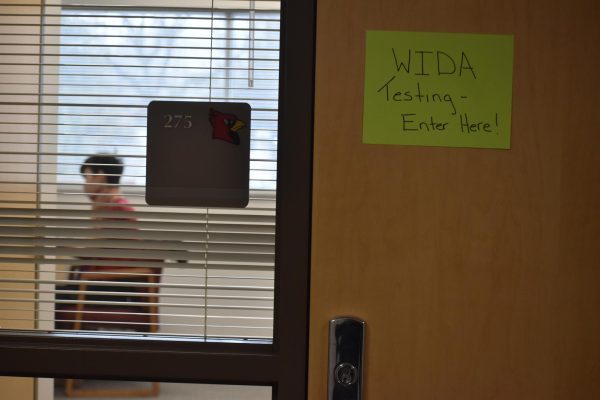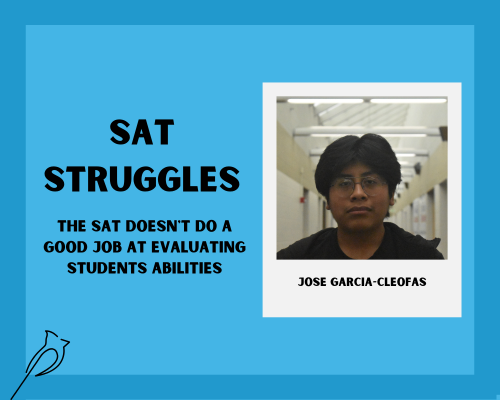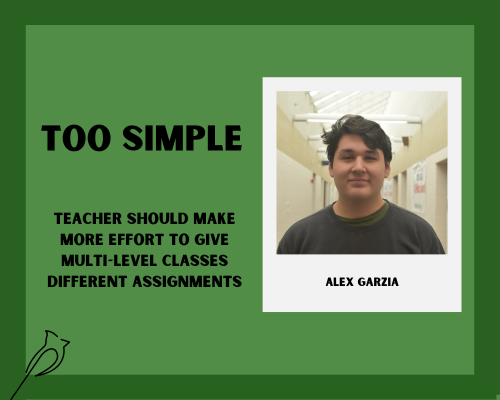Partial government shutdown impacts students
A partial government shutdown began on Dec. 22. The shutdown started as a result of the failure to agree on President Donald Trump’s request for $5.7 billion for a border wall, according to The New York Times. A total of nine federal departments and other agencies stopped work, impacting many employees.
Before Dec. 21 Trump met with Nancy Pelosi and Chuck Schumer, the two Democratic leaders of the House and the Senate respectively. Trump says that if he didn’t get funding for the wall he had no problem shutting the government down and now blames Democrats for the shutdown, according to social studies teacher Bonnie Tempest.
According to Tempest some of the most affected agencies are the TSA and the Department of Agriculture. Tempest says that these will be the departments that citizens will see the biggest change in. She says that many TSA agents are calling in sick as they aren’t getting paid due to the shutdown.
“A lot of people do live paycheck to paycheck,” Tempest said. “If you don’t get a couple paychecks, you can’t pay for lots of things. So some of them are going looking for other jobs.”
Junior Gavin Simpson has been affected by the shutdown. Simpson says his mom is considered a nonessential worker and isn’t sure when she will get her next paycheck. Simpson says that like this time and times in the past that the government has shut down, his mom takes a vacation to Florida since she isn’t getting paid.
“Back when she worked at the IRS Call Site, she was a necessary worker so she had to go in, but we still weren’t getting paid even though she had to go and work,” Simpson said. “But now she doesn’t really have to work right now, but again she’s not getting paid right now.”
Simpson says that things at home are different when his mom isn’t around. He says the main difference is that he has to cook his own meals. Even after his mom gets back, Simpson says she doesn’t necessarily have to go in for work.
Tempest recalls when there was a shutdown during Bill Clinton’s presidency and compares it to a game of chicken. She says the President tries to blame Congress, and Congress blames the President. When it came to the shutdown during Clinton’s presidency, Tempest says that many people blamed Congress. During the current shutdown Tempest says that more people are blaming Trump, according to polls, although it isn’t as extreme.
“The longer (the shutdown) goes on, the more people are probably going to pay attention once it starts affecting them,” Tempest said.
According to The New York Times, if lawmakers and the White House fail to come to an agreement within the next few months or even within the next year funding for federal courts, food stamps, activities for the 2020 census and many others will start to run out. The New York Times says that economists are predicting that if the shutdown lasts past February, then there will be a broader economic harm.

Hello! My name is Julia Brookshire and I am the Online Managing Editor this year for The Journal. My journey to this position has been in fast forward,...


